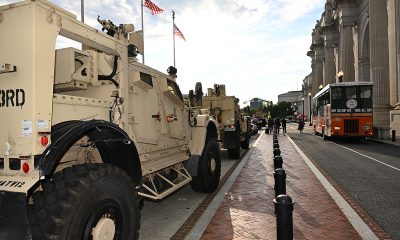Arts & Entertainment
Russian adventures
Dance legend’s time abroad explored in new work
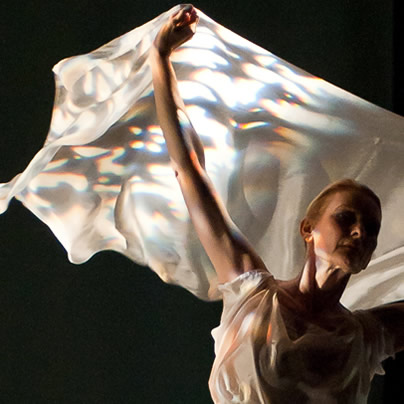
‘Once Wild: Isadora Duncan in Russia’
Today through Sunday
Word Dance Theater
Georgetown University’s Davis Performing Arts Center
37th & O Streets, NW
$10-$25
202-687-ARTS
worddance.org
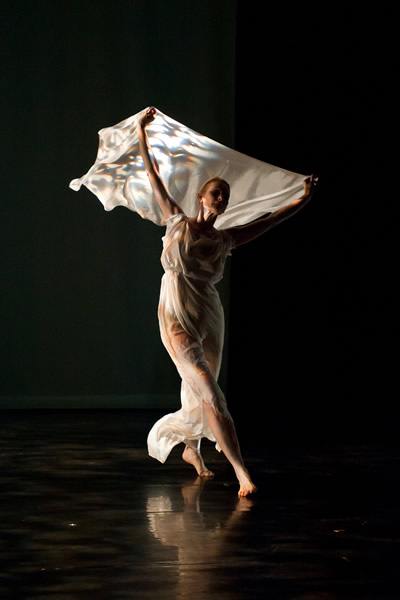
Cynthia Word as Isadora Duncan in ‘Once Wild.’ (Photo by Teresa Castracane, courtesy Theo Kossenas, Media 4 Artists)
Isadora Duncan’s spectacular life is often reduced to a cautionary tale: long, flowing scarves and convertibles don’t mix. But there’s much more to the glamorous mother of modern dance than her ungraceful death and Word Dance Theater, a D.C.-based cross disciplinary company dedicated to carrying forth Duncan’s work, is doing its best to make sure that the world knows it.
Word Dance Theater is joining forces with Georgetown University’s Davis Performing Arts Center to present “Once Wild: Isadora in Russia,” a compelling slice from Duncan’s groundbreaking legend.
Penned by Norman Allen, who is gay, “Once Wild” reimagines Duncan and her adopted daughter Irma’s time in Russia during the early days of the Bolshevik revolution. It follows the American dancer’s efforts to introduce iconoclastic choreography to young Russian dancers; the challenges they encountered opening a dance school amidst a background of sweeping social changes and Isadora’s tumultuous romance with volatile Russian poet Sergei Esenin (danced by Helen Hayes Award-winning, out actor Philip Fletcher).
The story — an original work based on historic facts — is told from Irma’s point of view. Because the production combines both theater and dance, Allen says, there are two Irmas on stage throughout the show — an older Irma who sits in a wheelchair (Kimberly Schraf) delivering all of the 80-minute work’s dialogue, and company member Ingrid Zimmer who silently dances as the younger Irma, embodying the memories and essence of Duncan’s choreography.
“Once Wild” isn’t Allen’s first foray into the world of dance. Early in his career he scored a big success with “Nijinsky’s Last Dance,” a one-man show about the legendary, gravity-defying Russian ballet dancer. He’s also written a libretto for the Washington Ballet. “With ‘Once Wild,’ the dance and words are interwoven and overlap,” Allen says. “As always with any work, the toughest part was finding the structure. How do you make sense of five years of historical tumult and two women doing amazing things? (Director Derek Goldman) and I have tried to make this play a reliving rather than a looking back. Old Irma speaks to young Irma. It’s much more alive this way.”
Cynthia Word, Word Dance Theater’s artistic director and the show’s choreographer, plays Isadora.
“Though I’ve been interested in Duncan for many years, dancing and choreographing her work, this is the first time I’ve ever portrayed her. It’s a big responsibility. Isadora, I think, would only want that I dance my truest self.”
Duncan, who died from a broken neck at 49 in 1927 on the Côte d’Azur after her trademark long scarf became entangled in the spokes of her chauffer-driven Bugatti, was a genius who single handedly altered the entire concept of dance. Unlike classical ballet that left audiences in awe, she preferred organic, relatable movement. Her work incorporated timely issues. She danced to music composed by the great masters and incorporated themes of current issues on stages stripped of unnecessary spectacle. She and her dancers dressed in comfortable, loose-fitting tunics (the theme song for the ‘70s sitcom “Maude” describes Isadora as “the first bra burner”). “I doubt she ever wore a bra to start with,” Word says.
“Once Wild” includes a lot of Duncan’s own choreography. Other than some flickering images, there’s no film of Duncan dancing, Word says. But fortunately for today’s choreographers, Duncan was a star on the between-the-wars Paris art scene, so there are many photographs and paintings of her in dance poses which give important clues about the dance. Archived reviews describing her work have proved very helpful too. “Lineage from dancer to dancer has also become very important,” says Word whose teacher was taught by one of Duncan’s students. “How close you can get to the source is important. Being close to the source makes the work more real.”
Duncan was still performing and very active until the end. “She had premonitions about her death,” Word says. “But it didn’t help. Isadora loved to go fast.”
Out & About
Plan your wedding the LGBTQ way
Washington D.C. LGBTQ+ Wedding Expo scheduled for Sunday
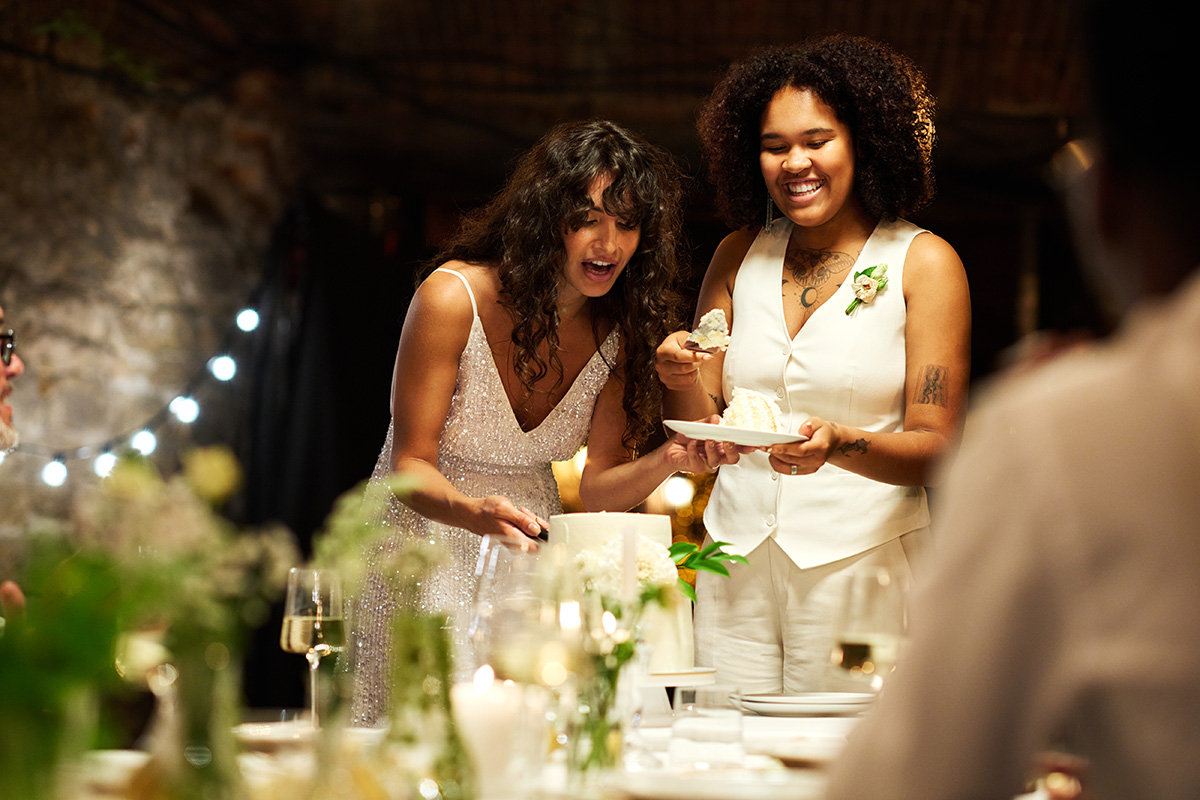
Rainbow Wedding Network will host “Washington D.C. LGBTQ+ Wedding Expo” on Sunday, March 1 at 12:30 p.m.
Guests can meet and mingle with a curated selection of LGBTQ-welcoming wedding professionals from across the region, each ready to help bring your vision to life, and spend a beautiful afternoon exploring everything they need to create a celebration that reflects them.
There will be a relaxed, self-guided look at the Watergate’s spaces and amenities, savor signature cocktails and delicious tasting samples, and connect with other couples who are on the same journey.
Visit Eventbrite to reserve a spot.
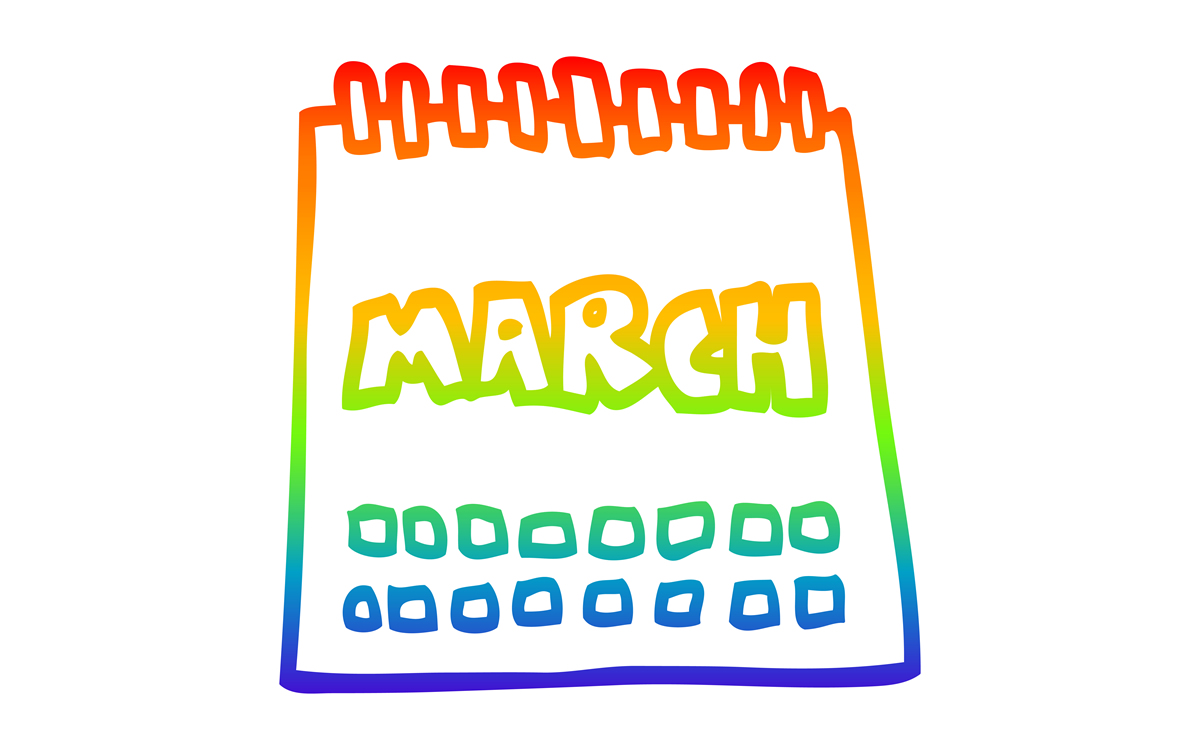
Friday, February 27
Center Aging Monthly Luncheon With Yoga and Drag Bingo will be at 12 p.m. at the DC Center for the LGBT Community. Email Mac at [email protected] if you require ASL interpreter assistance, have any dietary restrictions, or questions about this event.
Go Gay DC will host “LGBTQ+ Community Happy Hour Meetup” at 7 p.m. at Freddie’s Beach Bar and Restaurant. This is a chance to relax, make new friends, and enjoy happy hour specials at this classic retro venue. Attendance is free and more details are available on Eventbrite.
Trans Discussion Group will be at 7 p.m. on Zoom. This group is intended to provide an emotionally and physically safe space for trans people and those who may be questioning their gender identity/expression to join together in community and learn from one another. For more details, email [email protected].
Saturday, February 28
Go Gay DC will host “LGBTQ+ Community Brunch” at 11 a.m. at Freddie’s Beach Bar & Restaurant. This fun weekly event brings the DMV area LGBTQ+ community, including allies, together for delicious food and conversation. Attendance is free and more details are available on Eventbrite.
The DC Center for the LGBT Community will host “Sunday Supper on Saturday” at 2 p.m. It’s more than just an event; it’s an opportunity to step away from the busyness of life and invest in something meaningful, and enjoy delicious food, genuine laughter, and conversations that spark connection and inspiration. For more details, visit the Center’s website.
Black Lesbian Support Group will be at 1 p.m. on Zoom. This is a peer-led support group devoted to the joys and challenges of being a Black lesbian. You do not need to be a member of the Beta Kappa Chapter or the Beta Phi Omega Sorority in order to join, but they do ask that you either identify as a lesbian or are questioning that aspect of your identity.Send an email to [email protected] to receive the zoom link.
Sunday, March 1
LGBTQ+ Community Coffee and Conversation will be at 12 p.m. at As You Are. This event is for people looking to make more friends and meaningful connections in the LGBTQ community. Attendance is free and more details are available on Eventbrite.
Monday, March 2
“Center Aging: Monday Coffee Klatch” will be at 10 a.m. on Zoom. This is a social hour for older LGBTQ+ adults. Guests are encouraged to bring a beverage of choice. For more information, contact Adam ([email protected]).
Tuesday, March 3
Universal Pride Meeting will be at 7 p.m. on Zoom. This group seeks to support, educate, empower, and create change for people with disabilities. For more details, email [email protected].
Wednesday, March 4
Job Club will be at 6 p.m. on Zoom upon request. This is a weekly job support program to help job entrants and seekers, including the long-term unemployed, improve self-confidence, motivation, resilience and productivity for effective job searches and networking — allowing participants to move away from being merely “applicants” toward being “candidates.” For more information, email [email protected] or visit www.thedccenter.org/careers.
Center Aging Women’s Social and Discussion Group will be at 6 p.m. on Zoom. This group is a place where older LGBTQ+ women can meet and socialize with one another. There will be discussion, activities, and a chance for guests to share what they want future events to include. For more information, email [email protected].
Thursday, March 5
The DC Center’s Fresh Produce Program will be held all day at the DC Center for the LGBT Community. People will be informed on Wednesday at 5 p.m. if they are picked to receive a produce box. No proof of residency or income is required. For more information, email [email protected] or call 202-682-2245.
Virtual Yoga Class will be at 7 p.m. on Zoom. This free weekly class is a combination of yoga, breathwork and meditation that allows LGBTQ+ community members to continue their healing journey with somatic and mindfulness practices. For more details, visit the DC Center’s website.
a&e features
Transmission DC breathes new life into a storied sound space
A fresh home for boundary-pushing culture on H Street

Late last year, phoenix-style, a fresh home for boundary-pushing culture arose on the H Street corridor. Transmission DC – a queer, trans, and POC-owned, operated, and centered community-focused venue – powered on in the former home to the Rock & Roll Hotel (famously, not a hotel, but very much rock & roll). Transmission (1353 H St., N.E.) arrives secure in its mandate – or even birthright – to provide a place to celebrate creativity and music through a lens of inclusivity and respect.
Transmission’s team brings experience, but also representation. Owners/partners Kabir Khanna (who is also programming director), Katii B, Ellie McDyre, and Kelli Kerrigan together previously managed 618 productions, a venue in Chinatown, crafting “some of D.C.’s freakiest parties, raves, and mosh pits” they note.
They packed up operations last fall to a space curated specifically for D.C.’s underground music and culture scene, building their efforts in Chinatown to bring in more fans in queer and POC circles.
Transmission, Khanna points out, is built on DIY values. In the music scene, DIY means that promoters and organizers – often disconnected from the mainstream and part of marginalized communities – build shows and programs collaboratively, but independently from institutions, supporting each other as smaller, independent venues close. Here, Transmission aims to ensure that those putting together these underground inclusive shows have a more permanent and stable home, can have access to resources, and can provide more sustainable income to artists. “We’re trying to get more people to support and enjoy the music, and also give artists and organizers within the DIY community more structure and a larger cut,” says Khanna.
Khanna also notes that Transmission operates “under the principles of safety, inclusivity, and respect.” McDyre added that even at venues that claim inclusivity, that statement might not take place in practice. We’re “not just pitting up a rainbow flag,” says McDyre, but as some of the owners are trans and POC, audiences can see themselves reflected at the top.
Much like the DIY nature of the music community, the Transmission owners brought a DIY ethos to turning around their space.
In March 2020 – the height of COVID lockdowns – Rock & Roll Hotel suddenly shuttered, though not due to the pandemic; instead, the venue claimed that decreasing sales and increasing competition led to the closure. For 14 years, it was the central spot for cheap beer and lesser-known and celebrated acts. The space stood vacant for more than five years, until Transmission turned the power back on.
“When we got into the space, it was effectively abandoned for years,” says Khanna. “There was a ton of mold, and paint primer covering all surfaces. It was nearly falling apart.” Khanna noted that many music venues like this one, regardless of how well it was maintained, “get the shit kicked out of it,” given the nature of shows. The team called in mold removal contractors, ripped up most of the floorboards, and started fresh.
Transmission’s first floor is styled as a stripped-down black box: the better to take in the music. “It’s minimal on purpose to act as a canvas for set design and music,” without a specific aesthetic, says Khanna. Moving upstairs, the second floor has been opened up, removing some walls, and now has a larger dance area than the first floor. Beyond the first two performance levels, and a holdover from Rock & Roll Hotel, is the rooftop. Though without a stage, the rooftop space is filled with murals splashed across the walls, with a full bar. Transmission’s current capacity is 496, but the team is looking to grow that number. Transmission will also leverage the full kitchen that Rock & Roll Hotel operated, bringing in Third Hand Kitchen to offer a variety of food, including vegan and vegetarian options.
Khanna pointed out an upcoming show reflective of Transmission’s inclusive ethos: Black Techo Matters on Feb. 27. The event is set to be “a dynamic, collaborative night of underground electronic music celebrating Black History Month.” Khanna says that techno came from Black music origins, and this event will celebrate this genesis with a host of artists, including DJ Stingray 313, Carlos Souffront, and Femanyst.



